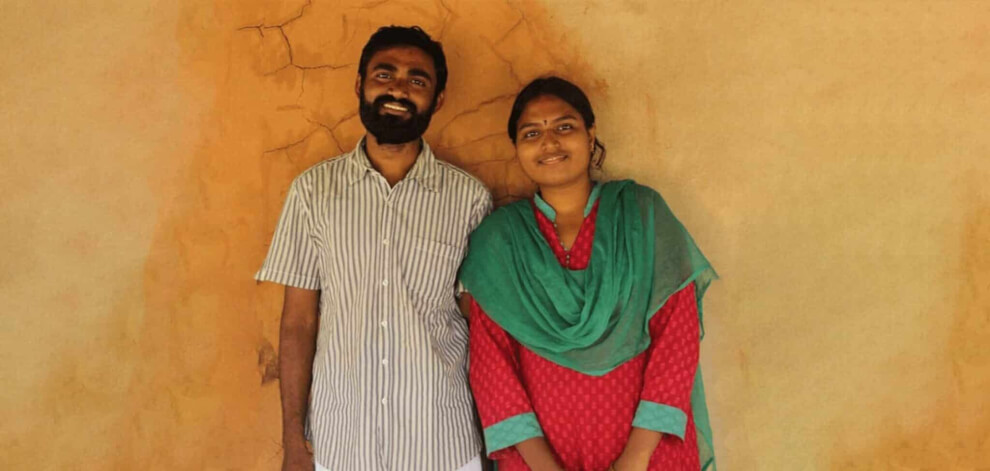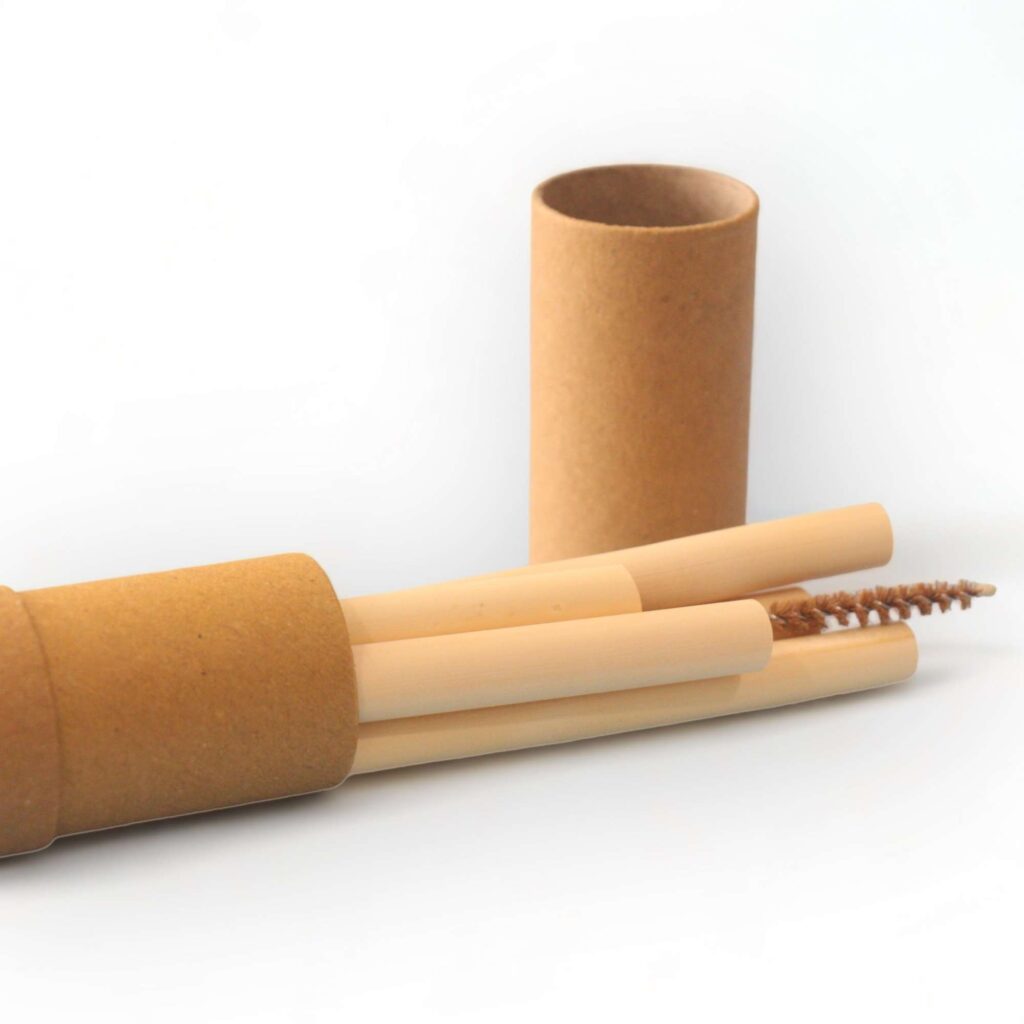Arun Kumar and his sister SP Ponmani were cleaning up their childhood home in Madurai one afternoon when they stumbled upon a chest filled with pure cotton clothes from when they were babies. “The material was so soft and still usable even though they were about twenty years old,” says Ponmani with amusement recalling the event that transformed their careers. Ponmani had just completed a degree in fashion design from Coimbatore while Arun returned to Madurai after a series of gigs in website and interior design in Chennai and Bangalore. While talks of marriage filled the halls of the household, the siblings decided they would utilize the skills they had acquired over the years to make an impact first.
By December 2016, the duo began hunting for hand-spun cotton to make about ten articles of clothing for newborn babies. Ponmani took up the job of designing the clothes, keeping in mind durability and comfort. The brand was called Ambaram (an ancient Tamil word that means comfortable fabric), fittingly representing the products they sold. “We wanted to design the clothes without zippers, buttons and elastic because they tend to hurt the baby,” they explain. The siblings began to spread the word about their revived baby clothing by gifting their products to people they knew.
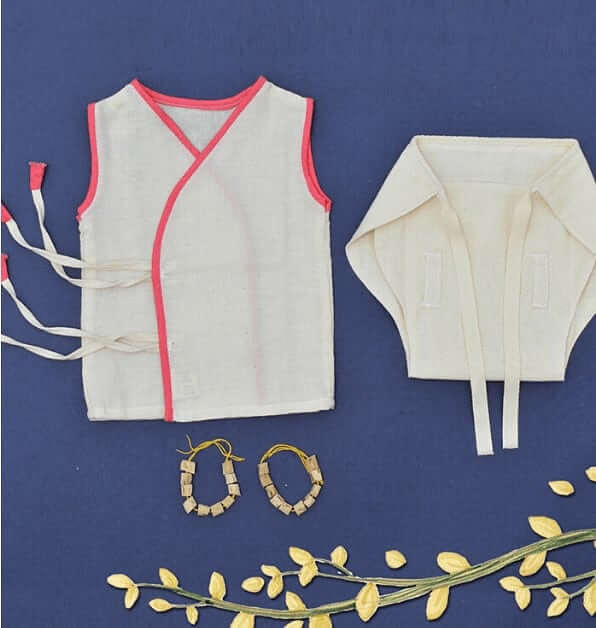
Arun and Ponmani’s shared ideologies shaped by the philosophies of G. Nammazhvar, an environmental activist, lead them to spend Gandhi Jayanthi at the Cuckoo Forest School the following year. “Besides the occasional temple visits from when we were younger, that was our first exposure to rural life,” reveals Ponmani, “We met so many like-minded people making an impact in their own ways.” It was during this visit that the duo met Sivaraj Anna, the founder of the Cuckoo Movement, who encouraged the young entrepreneurs to take their passion project to the next level by introducing them to a team who would help them with resources from material supply to sustainable packaging.
During their stay at Thiruvannamalai, Arun and Ponmani came across an opportunity at the nearby Puliyanur village. The women in the village were married in their teens and gave birth even before reaching their twenties. This would force the young couple to leave their children with the elders in the village while they set out to nearby districts in search of jobs to support their families. Ponmani and Arun decided that they would set up the Ambaram tailoring unit at the small village and give the women an opportunity to earn money without having to leave their young children to grow up in their absence.
Gaining acceptance in the village was the first task. “Villagers are always skeptical about outsiders who enter their community to help them,” says Ponmani, “They aren’t to blame because there have been instances where villages have been exploited for commercial gain.” Ponmani began by setting up her tailoring machine outside where she was staying and spreading word to the community that she was willing to teach tailoring skills to anyone who was interested.
Her enthusiasm was greeted with raised eyebrows from the women of the community who were wondering why an urban girl out of the blue would set up her machine and offer to take classes in their tiny village. “Finally a woman stepped forward and expressed her interest to learn,” narrates Ponamani with a smile, “She spoke to me about her financial situation and expressed her interest to contribute to her family’s earnings.”
Very soon five more women followed suit. The training space eventually became a production unit for Ambaram. “We transported hand-spun cotton from Erode and Gandhigram to Puliyanur where the women would stitch jablas, shorts and nappies for babies,” says Arun. Besides entirely using tie-ups as an alternative for the usual zip or button closure, Ponmani would customize the unisex off-white, free-sized handloom outfits with pastel borders and embroidery patterns.
As the year passed, Arun moved back to Madurai with his family while Ponmani was married and moved closer to Puliyanur with her husband. The village community was now more accustomed to her presence and placed faith in her ideas. Meanwhile, Arun found a team of two women back at Madurai to take up the stitching work for Ambaram expanding into clothing for girls and boys below the age of five.
Ponmani had grown fonder of the village community and realised that merely upskilling the women was not enough to give them the autonomy they deserved. That marked the birth of Ponmani’s very own brand, Thuvam in 2018. Thuvam was all about empowering the village women and breaking taboos. “We started making handloom undergarments for women. We couldn’t use the same handloom fabric that we used at Ambaram for durability sake, but we found a breathable cotton alternative to the woven fabric that is widely used today,” explains Ponmani.
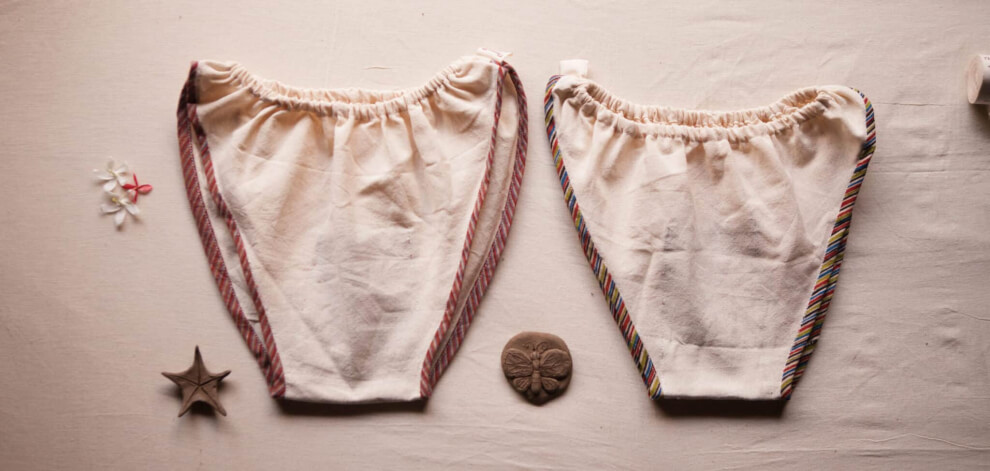
The scope of Ponmani’s brand extended beyond merely creating a new line of cotton garments. She would gather the community on a regular basis to talk about topics like menstrual hygiene or sustainable living. “Most of the conversations would revolve around taboos and the need for action,” she reveals, “There are so many people trying to break these kinds of barriers in the urban areas but the rural population is still in the dark.”
Ponmani did not restrict her conversations with only the women of the community, she would also conduct educational storytelling sessions about climate change with the children. “We started collecting remaining fabric from textile industries to make some toys,” she says explaining the inspiration behind the brand’s new line of stuffed animals. The theme of the Thuvam toys line revolves around endangered species featuring animals like the blue whale and the owl. The toys were made with the intention to send across a message about the impending danger of fast consumerism leading to pollution and endangerment of rare species.
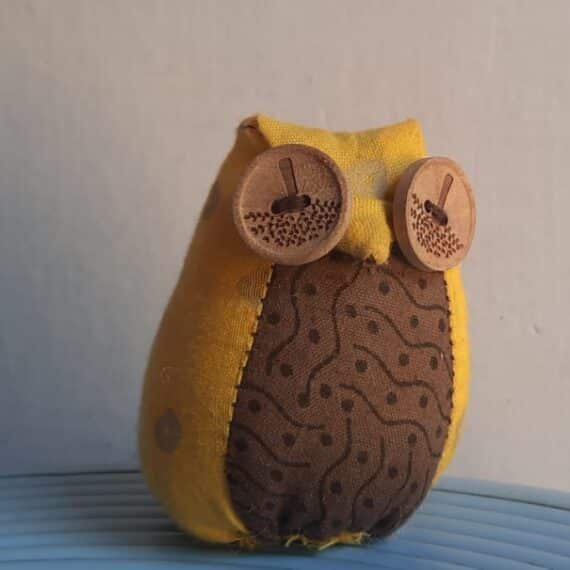
Ponamani is currently working on diversifying into more textile products for women like messenger bags, clutches and phone cases. “Diversifying into different kinds of products is very important for a niche brand like ours so that the women we work with constantly have a source of income,” she explains. In the future, she wishes to create a communal space where she can conduct workshops about sustainable living and invite people from outside the village to conduct skill exchange sessions.
Although Arun and Ponmani have split their ventures into two different brands, Ambaram and Thuvam work as an ecosystem. “Most of the women who buy from Thuvam buy clothes from Ambaram for their children,” reveals Arun. Moreover, the founders prove that having a sibling with shared ideologies for a business partner makes the operations run smoother. “Arun sometimes helps with the shipping and marketing of the Thuvam products from Puliyanur and I help him design new clothes for Ambaram,” laughs Ponmani. Though the two have been in the same business rivalry has never gotten in the way. “Creating the ecosystem let us help each other in our respective businesses—be it material or labour,” Ponmani says with a chuckle.
Handloom products are slowly making their way back onto the shelves. The Ambaram and Thuvam products are now only available online and at organic stores in Coimbatore and Chennai. Though the mainstream market still charges higher to list handloom products in their stores, the brother-sister duo is working hand in hand to spread awareness to transform the garment industry into a more comfortable and sustainable space.

